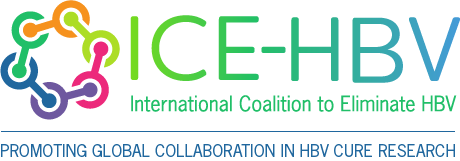Abstract from ILC 2020 Newsletter:
Although there are highly effective therapies for hepatitis B infection, none currently offer the reliable prospect of a cure and there are few available options for hepatitis D. Today, progress towards the development of curative treatments for hepatitis B and HBV/HDV coinfection were showcased at Digital ILC 2020, with novel molecules encompassing several mechanisms of action.
Results from trials of three agents targeting the transcription of viral proteins were reported: the RNA interference (RNAi) therapy VIR-2218 and the antisense oligonucleotides ISIS 505358/GSK3228836 and RO7062931. All showed reductions in hepatitis B surface antigen, particularly in patients also receiving nucleos(t)ide reverse transcriptase inhibitors.
Phase 2 clinical trials in virally suppressed chronic hepatitis B patients have also demonstrated initial efficacy and favourable safety profiles for the hepatitis B core inhibitor ABI-H0731 and the oral TLR8 agonist, selgantolimod. These two therapies work through direct targeting of viral proteins and immunomodulation, respectively, showing the potential viability of multiple routes towards a cure for hepatitis B.
In patients with chronic HBV/HDV coinfection, high-doses of first-in-class entry inhibitor bulevirtide, administered in combination with PEG-IFNα or tenofovir, were well tolerated and led to continuous decline in HDV RNA that was maintained over 48 weeks of treatment. This highlights a potential new treatment option for the most severe form of viral hepatitis and a significant unmet need in the field.
Find out more on https://easl.eu/
